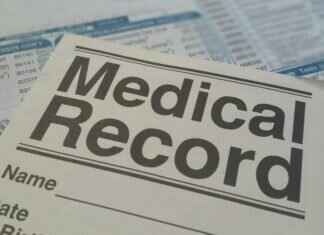In the world of wine, tasting can be a laborious task, requiring focus, dedication, and a discerning palate. It’s not just about sipping casually with friends on a weekend getaway; it’s about analyzing and evaluating hundreds of wines in a single sitting. Imagine sampling 394 different wines in one day, ranging from Chardonnay to Cabernet Sauvignon, Syrah, and Chenin Blanc. The challenge is not only immense but also crucial in selecting the best American wines for a prestigious competition.
Back in 1976, the wine world was forever changed by the Judgment of Paris, a groundbreaking event that put California wines on the map. Now, fifty years later, two innovative winemakers, Pax Mahle and Patrick Cappiello, along with digital media entrepreneur Josh Entman, sought to revisit this historic competition with a modern twist. Their mission was to identify the top American wines that would compete in a recreation of the iconic tasting event.
The journey began with a rigorous selection process, where 11 industry veterans gathered to taste nearly 400 wines across four categories: Chardonnay, Chenin Blanc, Cabernet Sauvignon, and Syrah. Wineries from eleven different states, including lesser-known regions like Michigan and Arizona, submitted their best wines for consideration. The goal was to choose five finalists in each category to compete in the upcoming “1976 Redo.”
Over two intense days of tastings, the judges faced the daunting task of narrowing down the field to the finest examples of American wine. With each sip, they evaluated the nuances of each varietal, from the oakiness of Chardonnay to the complexity of Syrah. The challenge was not just physical but also mental, as the judges grappled with the gravity of their decisions and the self-doubt that accompanied them.
Despite the exhaustion and sensory overload, the judges persevered, recognizing the unique qualities of each wine and the evolution of American winemaking. Chardonnay showcased a shift towards freshness and vibrancy, while Cabernet Sauvignon presented a challenge with its concentrated flavors and higher alcohol levels. Chenin Blanc surprised with its energetic and nuanced expressions, while Syrah emerged as a standout category with well-balanced and complex offerings.
As the tasting marathon came to a close, only the organizers knew which wines had made it to the finals. With anticipation building and excitement in the air, Patrick Cappiello expressed his confidence in the quality of the contestants and the impact of the results to come. The journey to discover the best American wines had been arduous, but the promise of a sequel and the prospect of exciting revelations kept everyone looking forward to what lay ahead.
In the ever-evolving landscape of American wine, the “1976 Redo” tasting event offered a glimpse into the diversity, quality, and innovation that define the industry today. With a nod to history and a vision for the future, the judges and organizers celebrated the artistry and craftsmanship that continue to shape the legacy of American winemaking. As the final results awaited unveiling, the wine world braced for the next chapter in this captivating story of taste, tradition, and triumph.

































